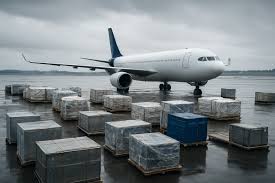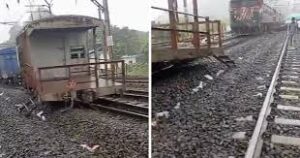Rajni Patwardhan, Head of Marketing, Kale Logistics Solutions, shares how Kale is transforming global supply chains with AI, cloud, and digital innovations, driving efficiency, collaboration, and ESG compliance for ports and airports worldwide.

Thriving on challenges, Kale Logistics views them as catalysts for innovation
In today’s interconnected logistics ecosystem, seamless collaboration among shippers, carriers, and government agencies is crucial. Rajni Patwardhan, Head of Marketing, Kale Logistics Solutions, highlights how Kale facilitates this through Cargo Community systems that address the challenges of visibility gaps in cargo complexes. Traditionally, visibility within cargo complexes has been limited. These platforms digitise documentation and track cargo movement end-to-end, ensuring smooth interaction across the entire ecosystem. These platforms streamline trade for all stakeholders, enhancing operational flow and transparency.
Eco-friendly trade
As sustainability becomes increasingly vital, Kale Logistics’ technology solutions empower companies to meet their environmental, social, and governance (ESG) objectives while ensuring operational efficiency. These solutions have eliminated nearly 10 million paper copies annually, conserving hectares of forest. Furthermore, several airports worldwide that have implemented Cargo Community Systems have seen significant reductions in truck fuel consumption, including one airport saving nearly 16,000 gallons of fuel in a quarter. A notable example is the Tuticorin port, where reduced gate congestion has contributed to a cleaner environment. This supports airports and ports in achieving ESG goals.
Sustainable solutions
Thriving on challenges, Kale Logistics views them as catalysts for innovation. This approach, evident since its inception, was underscored by the pandemic, which highlighted the critical role of technology in maintaining resilient supply chains. The industry responded by facilitating industry-wide adoption of cloud-based platforms, ensuring uninterrupted global trade. Recognising the current uncertainties, the company is proactively addressing them with innovative solutions. These include the development of intermodal corridors, the strategic application of AI to enhance operational efficiency, and the creation of a logistics marketplace to foster greater opportunities within the industry.
Delivering value
Kale Logistics boasts a portfolio of successful implementations demonstrating significant client benefits. At Mumbai International Airport, the company’s solution has yielded substantial economic, environmental, and operational synergies. By eliminating nearly 10 million physical paper copies annually, Kale Logistics contributes to forest conservation. Furthermore, its Cargo Community System has facilitated fuel savings across numerous airports globally, with one airport achieving a remarkable 16,000-gallon reduction in a single quarter. Operationally, slot management systems have effectively mitigated truck congestion. These improvements, coupled with cost savings and accelerated GST returns at Tuticorin Port (from 120 days to 7), have fostered high customer satisfaction and long-term relationships. Over 100 cargo stations across airports and ports have experienced streamlined operations through the successful deployment of these innovative solutions.
Data security focus
As a leader in cloud-based logistics solutions, Kale Logistics prioritises cybersecurity and data protection. Recognising evolving threats, the company leverages cutting-edge technologies. Kale Logistics diligently integrates cutting-edge technologies such as digital twins, blockchain, 5G, IoT, and AI/ML into its systems. This proactive approach has enabled the company to maintain the highest levels of data security for its clients. Notably, there have been virtually no reported cybersecurity attacks at any of the cargo stations where these systems are deployed, underscoring the company’s commitment to robust data protection.











